Scientific Advisors
-
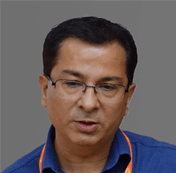
Dr. Kapil Bharti, PhD
Scientific Director, Intramural Research, NEI/NIH
-

Prof. David Gamm, MD, PhD,
Director, McPherson Eye Research Institute, University of Wisconsin, Madison
-
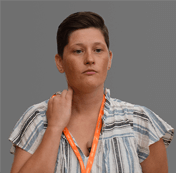
Dr. Renee Ryals, PhD
Assistant Professor, Oregon Health and Science University, Portland
-

Dr. SriniVas R. Sadda, MD, FARVO
Director of Artificial Intelligence & Imaging Research, UCLA
-
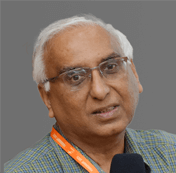
Dr. Mahendra Rao, MBBS, PhD
Former Director-NIH Centre for Regenerative Medicine
-
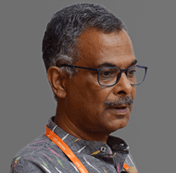
Prof. Ramaswamy Subramanian, PhD
Director, Bindley Bioscience Center, Purdue University, West Lafayette, Indiana
-
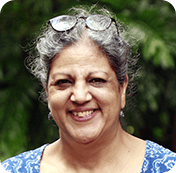
Dr. Jyotsna Dhawan, PhD
Emeritus Scientist, Center for Cellular and Molecular Biology, India
-

Dr. Su Xinyi, PhD, MMed, FAMS, MBChir
Senior Consultant in Vitreo-Retinal Surgery, National University Hospital (NUH), Singapore

Dr. Kapil Bharti, PhD
Scientific Director, Intramural Research, NEI/NIH
Dr. Kapil Bharti is currently the Scientific Director of Intramural Research at the National Eye Institute. Dr. Bharti holds a bachelor’s degree in Biophysics from the Panjab University, Chandigarh, India, and a master’s degree in biotechnology from the MS Rao University, Baroda, India. He obtained his PhD from J.W. Goethe University, Frankfurt, Germany, graduating summa cum laude. His PhD work involved research in the areas of heat stress, chaperones, and epigenetics. He did his postdoc at the National Institutes of Health, where he published numerous papers in the areas of transcription regulation, pigment cell biology, and developmental biology of the eye. It is perhaps this combination of diverse backgrounds that led him to develop an interest in the emerging field of stem cell biology, particularly of the retinal pigment epithelium. He was selected as the first Earl Stadtman Tenure-Track Investigator of National Eye Institute and is also the recipient of NIH Directors award and NEI Directors Dr. Karl Kupfer Visionary award for his groundbreaking research on developing ocular cell-therapies. His lab recently received approval for the first U.S. phase I/IIa trial to test autologous iPSC-derived RPE patch in AMD patients. Using a DoD award his lab has developed a 3D-ocular tissue to model retinal diseases in vitro. His current work as a Senior Investigator of the Ocular and Stem Cell Translational Research Section involves understanding the mechanism of retinal degenerative diseases using induced pluripotent stem cell derived eye cells and tissues, and developing cell-based and drug-based therapies for such diseases.

Prof. David Gamm, MD, PhD,
Director, McPherson Eye Research Institute, University of Wisconsin, Madison
Dr. David Gamm, MD, PhD, is a practicing pediatric ophthalmologist at the University of Wisconsin-Madison, where he holds positions as RRF Emmett A. Humble Distinguished Director of the McPherson Eye Research Institute; Professor of Ophthalmology and Visual Sciences; Sandra Lemke Trout Chair in Eye Research; Principal Investigator in both the Waisman Center Stem Cell Research Program and the UW Stem Cell and Regenerative Medicine Center. Dr. Gamm is a leader in the field of retinal cell differentiation from human pluripotent stem cells, including three-dimensional optic vesicle-based differentiation into photoreceptors and other retinal cells, first described in the Gamm laboratory. Dr. Gamm is also the co-founder & CSO of Opsis Therapeutics, a company advancing a pipeline of first-in-class cell replacement therapies targeting Age-Related Macular Degeneration (AMD) and a broad range of inherited retinal disorders including Retinitis Pigmentosa.

Dr. Renee Ryals, PhD
Assistant Professor, Oregon Health and Science University, Portland
Dr. Renee Ryals is a translational scientist with an interest in developing novel therapeutics for retinal diseases. Her research has focused on characterizing animal models of inherited retinal disease and treating these animal models with cell- and gene-based therapies. She received her BS in Chemistry and her PhD in Molecular Cell Biology and Clinical and Translational Science at the University of Florida. Her post-doctoral training was with Dr. Mark Pennesi at the Casey Eye Institute where she evaluated neuroprotective agents and their ability to slow retinal degeneration in a light-induced retinopathy model. Currently, Dr. Ryals is an Assistant Professor in the Department of Ophthalmology working in collaboration with other faculty members to develop lipid nanoparticle gene therapies for retinal degeneration. Dr. Ryals is also affiliated with the Molecular & Medical Genetics Department at OHSU and Department of Neuroscience, Oregon National Primate Research Center.

Dr. SriniVas R. Sadda, MD, FARVO
Director of Artificial Intelligence & Imaging Research, UCLA
SriniVas R. Sadda, MD, is the Director of Artificial Intelligence & Imaging Research at the Doheny Eye Institute, and Professor of Ophthalmology at the University of California – Los Angeles (UCLA) Geffen School of Medicine. He is the immediate past President of the Doheny Eye Institute. He received his MD from Johns Hopkins University, where he also completed ophthalmology residency and neuro-ophthalmology and medical retina fellowships (Wilmer Eye Institute).
Dr. Sadda’s major research interests include retinal image analysis, advanced retinal imaging technologies, and clinical trial endpoint design. He has more than 680 peer-reviewed publications and 20 book chapters, and has given over 450 presentations worldwide. Dr. Sadda is Editor-in-Chief of the 7th Edition of Ryan’s Retina. He also serves as an Editor-in-Chief of Graefe’s Archive for Clinical and Experimental Ophthalmology and is an editorial board member of Ophthalmology, Ophthalmology Retina, Ophthalmology Science, Ophthalmic Surgery, Lasers & Imaging, and Retina. Among Dr. Sadda’s awards and honors are an Achievement Award and a Secretariat Award from the American Academy of Ophthalmology, Research to Prevent Blindness Physician-Scientist Award, a Senior Honor Award from the American Society of Retina Specialists, John H. Zumberge Research and Innovation Award, the Macula Society Young Investigator Award, American Society of Retina Specialists Young Investigator Award, Asia-Pacific Academy of Ophthalmology (APAO) Achievement Award, The Macula Society Paul Henkind Lecture and Award, Macula Society W. Ricard Green Lecture and Award, the VRSI Nararaja Pillai Oration, and the Euretina Lecture. He is also a Gold Fellow and also President-Elect of the Macula Society and the Association for Research in Vision and Ophthalmology (ARVO). Dr. Sadda’s research has been continuously funded by the National Institutes of Health for several years, including a current R01 grant from the National Eye Institute. He has been named to the Best Doctors of America list for several consecutive years.

Dr. Mahendra Rao, MBBS, PhD
Former Director-NIH Centre for Regenerative Medicine
Dr. Rao is internationally renowned for his research in stem cells and regenerative medicine. He has worked in the stem cell field for more than 2 decades, with positions in academia, government, regulatory affairs and industry, and he has authored more than 300 publications. . Following postdoctoral training at Case Western Reserve University, he established his research laboratory in neural development at the University of Utah. He next joined the National Institute on Aging as Chief of the Neurosciences Section where he studied neural progenitor cells. In 2011, Rao was appointed Director of the National Institutes of Health, Centre for Regenerative Medicine. He has also participated on committees including Chairman of the U.S. Food and Drug Administration’s Cellular Tissue and Gene Therapies Advisory Committee, the California Institute of Regenerative Medicine, International Society for Stem Cell Research and as the liaison to the International Society for Cellular Therapy .

Prof. Ramaswamy Subramanian, PhD
Director, Bindley Bioscience Center, Purdue University, West Lafayette, Indiana
Prof. Ramaswamy is a structural biologist with expertise in protein crystallography, who earned his Ph.D. in molecular biophysics from the Indian Institute of Science at Bangalore. After graduation, he moved to Uppsala, Sweden, for a fellowship at the Swedish University of Agricultural Sciences. Ramaswamy stayed at SLU for eight years, serving as a researcher and docent before moving to Iowa City for a faculty position at the University of Iowa. While working as assistant dean and director of core research facilities in Iowa, Ramaswamy helped create a unique structural biology program — an accomplishment he later duplicated at inSTEM in India. Ramaswamy was the founding Dean at inStem & also co-founded and served as the first CEO of the Center for Cellular and Molecular Platforms, Bangalore, a life sciences innovation hub for academia, industry and start-up companies.

Dr. Jyotsna Dhawan, PhD
Emeritus Scientist, Center for Cellular and Molecular Biology, India
Chief Scientist at CCMB and Professor, Academy of Scientific and Innovative Research and an Adjunct Professer at Institute of Stem Cells and Regenerative Medicine, Bangalore. Dr. Jyotsna Dhawan obtained a Ph.D. in cell biology and biochemistry from Boston University in 1991 and pursued postdoctoral work at Stanford University. Dr Dhawan joined the Centre for Cellular and Molecular Biology (CCMB) in Hyderabad, India in 1996, where she started a group studying the biology of quiescence in muscle stem cells. From 2009-2014, Dr.Dhawan was deputed to help establish the Institute for Stem Cell Biology and Regenerative Medicine (InStem) in Bangalore. Her recent work probes the control of epigenetic networks in quiescent stem cells, highlighting the importance of chromatin mechanisms in maintaining self-renewal capacity.

Dr. Su Xinyi, PhD, MMed, FAMS, MBChir
Senior Consultant in Vitreo-Retinal Surgery, National University Hospital (NUH), Singapore
Xinyi Su is the Acting Executive Director and Senior Principal Investigator at the Institute of Molecular and Cell Biology (IMCB). She completed her medical and PhD degrees at the University of Cambridge and joined IMCB in 2016. Su practices ophthalmology as a Senior Consultant in Vitreo-retinal surgery at the National University Hospital (NUH), Singapore. She also holds joint appointments as Research Director at the Department of Ophthalmology, National University of Singapore (NUS), and Clinician-Scientist at the Singapore Eye Research Institute (SERI). Su’s research interests focus on harnessing biomaterial, regenerative stem-cell, and nucleic acid technologies for the treatment of age-related retinal degenerative disease. Her research has been published in many top-tier scientific journals and she has obtained a career total of over SGD25 million in competitive research funding. Su is also the recipient of multiple global and national awards, including the Susan Lim Outstanding Stem Cell Young Investigator Award (2022) and National Medical Research Council Clinician Scientist Award (2022). Passionate about building bridges between science and medicine, Xinyi’s research interests are in translational research for retinal therapeutics.
